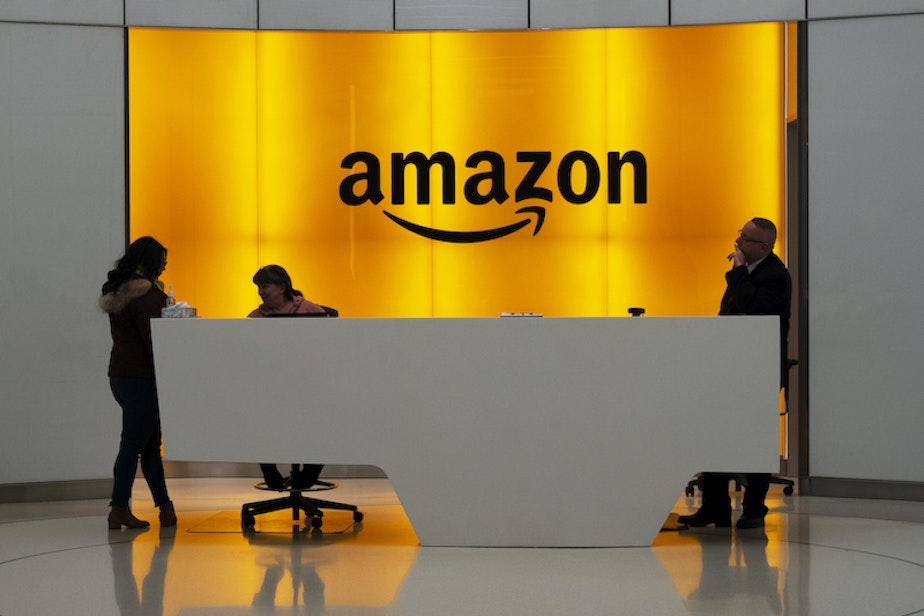Trust issues: Amazon could be fractured by impending FTC lawsuit, reports suggest

Amazon could face another major lawsuit from the Federal Trade Commission later this month — this time with the potential to break up parts of the company.
That’s according to news reports by Bloomberg and the Wall Street Journal this week.
Amazon runs the world’s largest online platform for sellers; the company is also a seller on that same platform, through its own brands. That means a clothing company, for example, must compete with Amazon’s clothing brands.
Critics argue Amazon has an unfair advantage by being able to access competitors’ performance — kind of like letting referees play in the soccer games they observe. Amazon, however, has repeatedly disputed that accusation.
RELATED: Alexa, does this online retailer make me look cool?
Now, a lawsuit aimed at Amazon’s marketplace appears imminent, with sources telling outlets like Bloomberg and the Wall Street Journal it’ll probably be filed later this month.
In August, the Wall Street Journal reported that Amazon shut down dozens of its house brands amid intensifying scrutiny.
But those remedies did not stop the Federal Trade Commission, which has broader concerns about Amazon, from readying its latest lawsuit against the company. The lawsuit reportedly focuses on how Amazon’s almost total control of its online marketplace leads to unfair business practices, in everything from who fulfills an order to how advertising creates winners and losers on the platform.
The Wall Street Journal reports the agency will recommend "'structural remedies’ that could lead to the breakup of the company."
An Amazon spokesperson told KUOW the company declined to comment on the impending lawsuit.
Trust and antitrust
Amazon regularly polls as one of the most trusted organizations in the US, presumably buoyed by good feelings from its customers, who far outnumber its sellers.
In a recent Harvard Center for American Political Studies / Harris Poll, Amazon was ranked the most-trusted institution in the United States, with the U.S. military falling into second place, followed by Google, police departments, The Centers for Disease Control, Facebook, and the country of Ukraine.
How you think about Amazon, and whether you trust the company to keep your interests in mind might depend on whether you’re a customer or a seller.
While many Amazon sellers are happy, some get ejected from the platform with little explanation, Justin Leigh, an e-commerce expert, told KUOW. His company Workflow Labs makes software to help sellers manage their Amazon sales.
"Amazon’s become very powerful," Leigh said. "And its system — because of the lack of humans and the degree of automation in systems that deal with things — has become sort of anti-business, and anti-helpful for the people who helped build its platform: the vendors and sellers."
But, he asked, does that violate antitrust laws? And is it bad for customers? He said that’s going to be harder to prove.
RELATED: Will Lina Khan’s FTC try to break up Amazon?
"Everything about Amazon’s platform is designed to increase selection and lower cost to customers," he said. "So that to me feels like it’s going to be a real stretch — to prove harm to customers through this process."
What's a 'monopoly' in the digital age?
Lina Khan, head of the Federal Trade Commission, has long argued that current antitrust laws are outdated, having been formed back in the days of more traditional monopolies like Standard Oil. She’s said we need to update how we regulate monopolies in order to rein in uncompetitive activity in the age of the internet.
"The potential harms to competition posed by Amazon’s dominance are not cognizable if we assess competition primarily through price and output," she wrote in a 2017 article in the Yale Law Journal. "Focusing on these metrics instead blinds us to the potential hazards."
One possible example of such a hazard is rooted in vendor complaints. Fortune Magazine reports that merchants have been complaining about how Amazon "ties access to its marketplace with its logistics service."
This lawsuit would be the fourth filed against Amazon by the FTC this year. One focused on Amazon’s retention of children’s data, another on Ring doorbell data. The third suit focused on the way Amazon recruits new Prime members, using practices the FTC considers coercive.
RELATED: Amazon sued by FTC over 'tricking' customers into Prime subscriptions
While Khan has kicked this work into high gear since being appointed by the Biden Administration, the Wall Street Journal reports the impending lawsuit caps a four-year investigation that began under President Trump. That makes regulation of big tech companies one of the few areas of bipartisan agreement, along with increasing U.S. production of semiconductors to further free that critical supply chain from China’s control.

